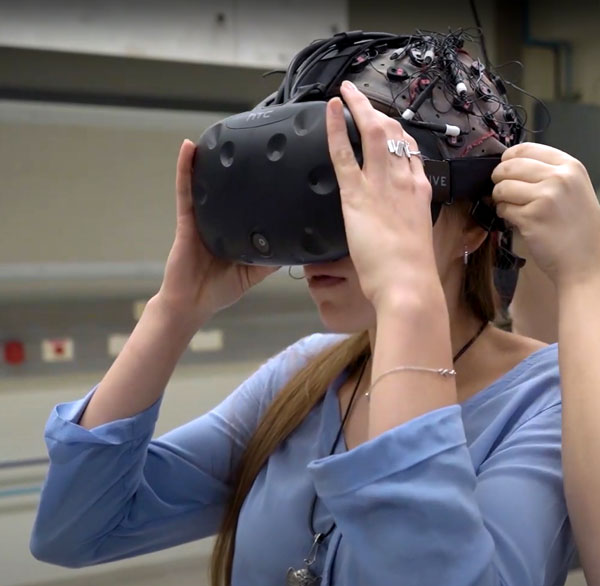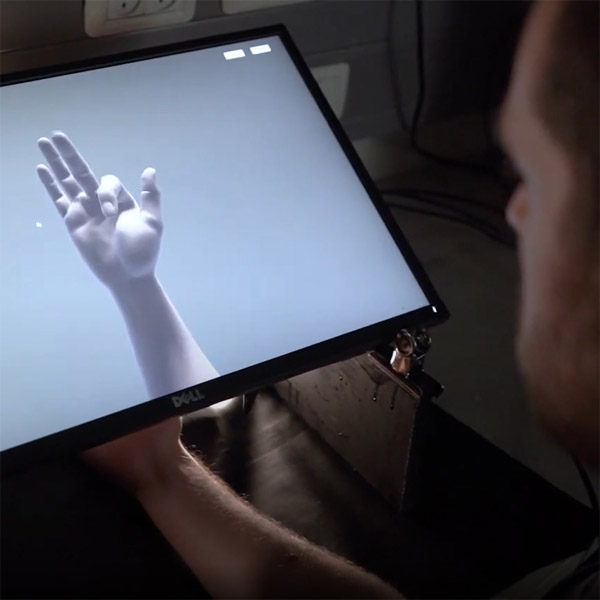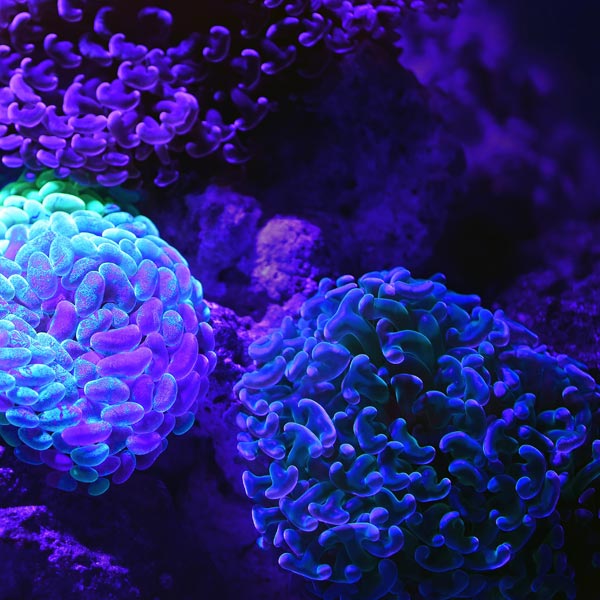We trust our perceptions to be accurate depictions of the world, which we conceive as “Reality”, but common neuropsychiatric symptoms such as hallucinations and illusions challenge this conviction.
Those conditions echo the fundamental philosophical question of “How do we know what is real”?
We tackle this question via a specialized virtual reality environment allowing us to create parametrically controlled virtual Hallucinations.
Through this platform, we are building a phenomenological and computational model of the Sense of Reality (SoR), which will be used as a framework to investigate the neural mechanisms of SoR in neuro-typical and altered states of consciousness.


The Bodily-Self and Actions
The Sense of Agency (SoA), our sensation of control over our actions, is a fundamental mechanism for delineation of the Self from the environment and others.
SoA arises from implicit processing of sensorimotor signals as well as explicit higher level judgments. Psychosis patients suffer from both difficulties in demarcation of the Self as well as problems in the sense of control over their actions.
At the lab we work on several projects regarding SoA, including novel machine learning methods to allow an automatic classification of healthy/psychosis clinical state, an EEG investigation of its neural correlates, the metacognition of SoA and more.
The Abnormal Sense of Self
Our sense of self is a fundamental construct of the human psyche, yet in extreme situations such as pscychosis it is altered.
Psychosis entails a breakdown of the self and a blurring of the boundary between the self and the other.
They experience symptoms such as passivity symptoms – the feeling that someone is controlling their actions.
At the lab we study how predictive processing of sensorimotor signals modify the sense of self in different stages of schizophrenia (at-risk, first episode and chronic) .


The Self in Psychedelic States
Psychedelic substances induce substantial changes in perception and the sense of self.
Thus, psychedelic experiences are a unique avenue to study the neural and cognitive mechanisms underlying such faculties.
The lab is actively engaged in the study of both cognitive, neural and clinical aspects of psychedelic experiences.
In collaboration with Beer Yakov mental health center and MAPS Israel we are exploring how psychoactive compounds such as psilocybin, MDMA and ketamine impact the sense of agency and the sense of reality.
We are looking at how they can be harnessed to treat clinical issues such as depression, depersonalization and PTSD.
The Social Self
As social creatures, social interactions are critical for mental and physical survival of humans.
Caregiver-infant interaction and attachment serve as the basis for the individual’s future social competence.
The social self, is the dimension of the self, defined by social attachment relationships.
We use longitudinal fMRI data to examine the neural basis of the social self across time as the individual develops, asking questions such as: “How is the continuity of lifelong affiliative attachment bonds represented in the brain?


